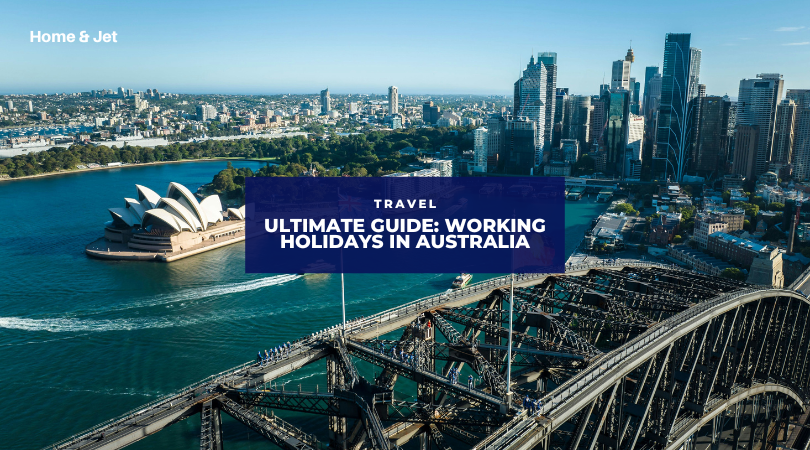Playing the Currency Exchange Game to Make Your Pounds Pack More of a Punch
As if watching your food, fuel, and energy bills spiraling ever upwards wasn’t bad enough, would-be British holidaymakers have been dealt another financial kick in the teeth in recent months.
Following the disastrous ‘mini budget’ which led to Liz Truss becoming the shortest-serving Prime Minister in British history, the pound plummeted in value against other currencies.
In years gone by, Brits have been used to getting $2 and as much as €1.75 to the pound, which often made the cost of goods when holidaying in Europe and the US seem cheap compared to home.
But now, with the pound keeping its head just above parity with those two currencies, the opposite is true. Eating, drinking, and shopping in continental Europe and the States suddenly feels very costly.
Many of us will be anxious enough about whether a holiday is even affordable next year. The thought that our holiday spending might be way higher than expected could be the straw that breaks the camel’s back for many people. When everyone is watching what they spend, that’s the last thing people need.
The pound’s recent woes have seen it fall against most currencies but less sharply against some than others. There are even a few countries where the local currency continues to be weak due to their own economic issues compared to the pound. That has sparked a new interest in what we might dub ‘currency market tourism,’ or people picking destinations based on where they will get the value when they exchange their money.
Travelling to countries where you can get a good exchange rate to the pound can lead to big savings on your holiday spending. But exchange rates are not the end all be all of the cheap holidays. Here’s where to find genuine bargains and where the promise of a cheap holiday is likely to be a false dawn.
Bargain destinations
Turkey is the top pick for UK holiday-makers looking for a cut-price holiday right now. For a start, Turkey has always represented a great value destination. It’s within easy reach and is therefore served by the usual budget airline suspects, and is packed full of coastal resorts offering cheap accommodation and/or competitively priced package deals.
But ongoing economic problems in Turkey have seen the value of the lira enter a downward spiral over the past four years, falling especially sharply since the fall of 2021. So even though the pound has had its problems, you can now (as of December 2022) get close to 23 lira to the pound, compared to 18 years ago.
That means that everything - accommodation, food, drink, taxi rides, etc. - is, in theory, more than 25% cheaper for British tourists visiting Turkey than things were 12 months ago. However, high inflation does soften that advantage. But still, the average cost per person for a night’s accommodation in Turkey is just over £7.50, public transport costs pennies, and you can eat for as little as £6 a day. That makes Turkey top of the list for cheap holidays right now. Although if you’re planning a summer break, just be aware that things can change quickly.
If you’re prepared to spend more on flights for a more exotic long-haul destination, Sri Lanka is by some distance the cheapest option around at the moment. The country’s economic and political crises earlier in 2022 saw the value of the rupee fall off a cliff. That means you can comfortably budget £20 a day per person for food, travel, and activities. The average cost of accommodation is just £7.70 per night per person.
Aside from its beautiful beaches, one of the main attractions of Sri Lanka is its lush tropical forests and mountains, with wildlife and cultural sites aplenty. You can hire driver-guides who will take you on tailor-made tours wherever you like for as little as £30 a day. And just remember, as cheap as tourists find local costs in Sri Lanka at the moment, everything visitors can put back into the country’s beleaguered economy will help the difficult recovery process.
Not all that they seem
So Turkey and Sri Lanka are destinations where you can save money on holiday right now by playing the currency exchange game. But you have to be careful you don’t get lulled into looking at exchange rates alone. Getting more for your pound in certain countries doesn’t necessarily translate into a cheap holiday experience.
Take Hungary, for example. Another country going through tough times economically, the Hungarian Forint, has fallen in value by around 10% compared to the pound in the past 12 months. Hungary is also well served by budget airlines offering low-cost flights.
But while getting there and daily spending might be cheap, accommodation is comparatively expensive and could easily wipe out any savings you get on flights, food, and drink.
It’s a similar story to Argentina, which is famous for its unofficial ‘blue dollar’ exchange market. For years, tourists carrying cash have been able to get considerably more pesos for their pounds (and dollars) from not-exactly legal currency exchanges in the country, which offer rates up to double what you can get officially.
So endemic has the dual system become that the government has now moved to make it semi-legitimate, allowing tourists using debit and credit cards to get beneficial rates, too.
All of this means that Argentina is incredibly cheap to visit as far as food, drink, and entertainment goes - you can enjoy a meal of the country’s famed steaks for no more than £5 a head. But flights to Argentina are not cheap, and like in Hungary, hotels in the main tourist areas can be pricey, too.
Carrying cash
One thing the Argentina example does flag up is that, despite its recent problems, the pound is still a major international trading currency, which means it is valued worldwide.
That, in turn, means that if you are prepared to carry cash with you, you can get better exchange rates on arrival in many countries than you would from changing money before you set off or by using your debit or credit card in that country, for that matter.
Unless you fall victim to fraud, you won’t suffer any financial losses, and your card issuer will make arrangements so you have access to funds for the rest of your trip. But carrying cash brings risks of its own.
If you lose it or fall victim to theft, you’ve got zero financial protection. If you rely on cards, on the other hand, the worst that could happen is you have to cancel it if it goes missing.
If you do decide to carry cash, whether in your home currency or already exchanged, you would be strongly advised to take out travel insurance. Cover for lost or stolen money is pretty standard on most policies, but you should check the payout limits.
Cheaper policies will generally only cover you for two or three hundred pounds worth of cash and will also have an excess to pay on any claim.
So if you are planning on carrying a considerable amount of cash, you should look at a more comprehensive level of cover with a low (or zero) excess to ensure you are fully protected.






